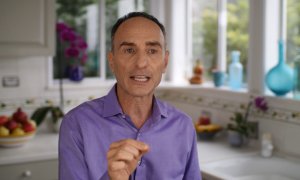“Your ideas are intriguing to me, and I wish to subscribe to your newsletter.” – Homer Simpson
One of my favorite lines (ever) perfectly sums up an increasingly common social pathology. Hints of a willingness to surrender critical thought for the feel-good fuzziness of “belonging” and “fighting against the establishment.”
Experts be damned, false prophets are on a mission to anoint themselves the new shamans of shoddy science. Their goal? To demonstrate just how wrong you’ve been to support issue X. Even neutrality is a grievous sin! But redemption is within reach. The public is the cliched heroine in distress, and scientists are the hapless suitor. Alternative facts are the knight in shining armor.
Despite only occasionally being trained in science, these spokespeople have unique insights that they’re willing to impart to you — Joe and Jane Concerned Citizen — for the right price.
In the quest for the public’s heart, how do we separate the bona fides from the posers? There’s no shortage of rickety information dealers.

Roll call: rattle off a list of dubious -ers, -ists, and -paths in science circles. How about flatearthers, anti-vaxxers, detoxers, acupuncturists, homeopaths, and naturopaths? On the ag side, we tend to stick with activist. Granted, that’s generic, and has negative baggage associated with it. Activists generally tow the same line on a laundry list of issues — anti-pesticide, biotechnology, and modern animal husbandry, and pro-organics/biodynamics, trendy, and haughty too expensive for you flavors of ag.
It’s important to note that properly conducted science isn’t agenda driven. Outline your materials and methods. Are your results reproducible? Most importantly, despite the tendency to see scientists as puritanical curators of the status quo, science thrives on new discoveries. It’s not a courtroom saga about suppressing evidence. A preponderance of current evidence determines the scientific consensus. And this drives decision-making by your Extension Agent or medical doctor.
One thing I always stress to my students — vet your sources! Fortunately, there are obvious behaviors that raise red flags. My top six MO’s of false prophets in the ag world (and pseudoscientists in general):
- In their minds, they’re trailblazers seeking to unveil a new, uncorrupted truth. Truth that has been expertly concealed to date. Social media is leveraged to maximum effect to fuel outrage.
- Everyone who disagrees with their flavor of “truth” has been methodically bought off. They’re just a cog in a far ranging conspiracy (jokingly, the $hillumanati). In addition, false prophets tend to lob ad hominem (personal) attacks at the opposition, to detract from gaps in their own evidence and reasoning. They may abuse FOIA (Freedom of Information Act) requests to secure emails of bullseye targets — all in a never-ending quest to unveil the enemy’s collusion with “big ag.”
- They have unique viewpoints that are insulated from critical interrogation — at least of a scientific persuasion — and require you to buy in not only philosophically, but literally, to sustain their media empires. They also have a distinct disdain for mainstream (non-conforming in their view) science.
- They make an announcement about groundbreaking research and exclude actual scientists, and/or insist on unusual terms (confidentiality/non-disclosure agreements) forbidding reputable scientists from discussing before an embargo is lifted.
- Despite being suspicious of the scientific establishment, they routinely run with dubious outlier studies (or even letters to the editor misrepresented as studies) that validate their fringe viewpoint. Confirmation bias is the norm.
- Guided by a selective sense of moral outrage, they get considerable mileage out of manufactured controversy. They have no qualms about lining their pockets on the backs of pet issues.
Despite these telltale signs, why are the bona fides still losing ground to posers? For one, controversy is sexy. Second, scientists can’t all be as animated as Bill Nye or Neil deGrasse Tyson. Despite that, they still reserve a certain credibility, a truth halo — until they’re victims of malicious character assassination.
When I lived in New Zealand, I was invited to give a talk about biotechnology at the local university. I received a rather frosty reception from the audience, who accused me of being a shill and mouthpiece for the ag industry. Apparently I’m a propagandist for reporting facts. Egad.
It’s distressing that many have become ideological wards of the alt-science alliance. And the sad thing is that they genuinely believe they’re doing the right thing.
Headwinds of science dissatisfaction are definitely converging at the public crossroads. I’m reminded of a cartoon circulating on social media. A passenger in a plane cabin gets up and confidently asks something to the effect of: “Who thinks I can fly this plane better than the pilot”? Everyone raises their hands — majority rules. That’s an apt parallel for the deluded “expertise” espoused by false prophets and their apostles.
Tim Durham’s family operates Deer Run Farm — a truck (vegetable) farm on Long Island, New York. As an agvocate, he counters heated rhetoric with sensible facts. Tim has a degree in plant medicine and is an Assistant Professor at Ferrum College in Virginia.



